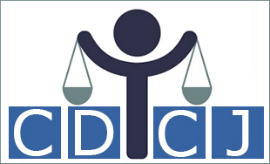Norway Grants
The European Economic Area (EEA) Grants and the Norway Grants Financial Mechanism 2009-2014 provided funding amounting to €1.798 billion to 16 beneficiary countries to strengthen economic and social cohesion and bilateral relations in the EEA. The Council of Europe’s was involved in 21 programmes of the EEA and Norway Grants across 10 of the Beneficiary States. This cycle of the Norway Grant was completed in May 2017.
The Council of Europe provided expertise and advice in bringing the Country Programme proposals in line with the relevant international standards and taking account of the real needs of the beneficiaries as a Donor Programme Partner (DPP). The Council of Europe was also actively supporting and closely co-operating with the beneficiary countries as Project Partner (PP) and implementing the specific projects for strengthening judicial system of Bulgaria, Croatia and Romania. These projects specifically aimed at increasing the competences of the actors within the judiciary, improving the efficiency of the court systems and enhancing access to justice. The fulfillment of these objectives contributed to a more efficient justice system, a prerequisite of the social and economic development in these countries.
The Council of Europe intervention in implementing the Programme and Pre-Defined Projects was based on its standards, contained both in its conventions and Committee of Ministers’ recommendations. It took into account the areas for improvement identified in the judgments of the European Court of Human Rights (ECtHR) and the relevant Committee of Ministers’ documents in respect of the execution of judgments, as well as the findings and recommendations of the European Committee for the Prevention of Torture and Inhuman or Degrading Treatment or Punishment (CPT). In this way, the implementation of the Programme and Pre-Defined Projects contributed to the fulfilment by the authorities of the beneficiary countries to their commitments to the Council of Europe and to a better compliance of national legislation, regulations and practices with European standards.
The Justice and Legal Co-operation Department was involved and supported the implementation of the following Pre-Defined Projects:
Bulgaria, Programme on Judicial Capacity-building and cooperation; Improvement of the efficiency of justice:
- Capacity-building and human rights training at the National Institute of Justice
- Support to the Supreme Judicial Council related to capacity building and improving the efficiency of the judiciary
- Support towards strengthening of domestic remedies to alleged violations of provisions of the ECHR and capacity for the execution of judgments of the European Court of Human Rights
- Improving access to justice for vulnerable groups, particularly Roma, via the implementation of a pilot scheme for primary legal aid and amendments to legislation
- Improving the capacity of General Directorate “Security” at the Ministry of Justice to fulfill their mandate in line with international human rights standards
Romania, Programme on Judicial Capacity-building and Co-operation:
- Strengthening the capacity of the Romanian judicial system to face new legislative and institutional changes
- Improvement of the Electronic Court Register Information System (ECRIS)
- Improving access to justice: an integrated approach with a focus on Roma and other vulnerable groups.
Croatia, Programme on Judicial Capacity Building and Co-operation
- Improving the quality and efficiency of the judicial system through infrastructure development and better management.



